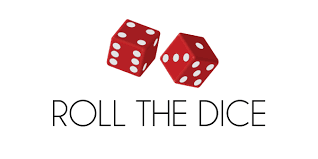Knowing When It’s Time To Call It Quits Is A Skill Few Entrepreneurs Perfect. However, The Good News Is That It Is Possible To Sell Your Startup If The Timing Is Right.
You've Got To Know When To Hold 'Em, Know When To Fold 'Em, Know When To Walk Away, And Know When To Run.
Depending on which generation you belong to, you’ll recognise the words above as coming from the chorus of a song called “The Gambler”, which was written and performed by Kenny Rogers. Kenny wrote 120 hit singles (songs) in his long and illustrious career, and sold more than 100 Million records (…they cost more than a download does today for Gen “Y” and Gen “Z”-ers reading this…).
In a strange way, the song could have been written about Startup Founders.
Know When To Walk Away
As an entrepreneur, you have poured your heart and soul into building your startup. But at some point, you may decide that it’s time to sell your business and move on to new ventures. If you’re considering selling your startup, one option you may want to consider is the private market.
Where Can You Sell Your Startup?
As an entrepreneur, you have poured your heart and soul into building your startup. But at some point, you may decide that it’s time to sell your business and move on to new ventures. If you’re considering selling your startup, one option you may want to consider is the private market.
The private market is a space where buyers and sellers of privately-held companies can connect and negotiate deals. Unlike the public market, where companies are listed on a stock exchange and anyone can buy or sell shares, the private market is more exclusive and often involves larger, more established companies.
Pros And Cons Of Selling On The Private Market
Selling your startup on the private market has a number of benefits. For one, the private market is generally less volatile than the public market, which means that you are likely to get a more stable and predictable return on your investment. Additionally, the private market is often less crowded and more efficient, which means that you may be able to secure a better price for your business.
Another advantage of the private market is that it allows you to retain more control over the sale process. In the public market, your company’s shares are subject to the whims of the stock market, and you have little say over who buys your shares or at what price. In the private market, on the other hand, you have more control over who you sell to and can negotiate the terms of the sale to your liking.
However, there are also some challenges and drawbacks to selling your startup on the private market. For one, the private market is generally less liquid than the public market, which means that it may take longer to find a buyer and complete the sale. Additionally, the private market is often more competitive, which means that you may have to compete with other companies for the attention of potential buyers.
Preparation Is Key To Successfully Sell Your Startup
To maximize your chances of success when selling your startup on the private market, it’s important to prepare yourself and your business. Here are a few key steps you can take to make sure you’re ready to sell:
Get your finances in order: Before you start looking for buyers, make sure that you have a clear picture of your company’s financial health. This means preparing detailed financial statements, including income statements, balance sheets, and cash flow statements. These documents will be critical in helping potential buyers understand the value of your business and will be key in negotiations.
Build a strong team: One of the most important factors in the success of a startup is the quality of the team. If you want to sell your startup on the private market, it’s essential that you have a strong team of experienced and dedicated employees who can help you navigate the sale process.
Develop a clear and compelling value proposition: In order to attract the interest of potential buyers, you need to be able to clearly articulate the value of your business. This means developing a compelling value proposition that highlights the unique features and benefits of your product or service, and explains why it is better than the competition.
Identify potential buyers: Once you have prepared your business for sale, it’s time to start looking for potential buyers. The private market is generally made up of larger, more established companies, so you may want to focus your search on companies that are in a similar industry or have similar products or services. You can also work with investment bankers or other advisors who can help you identify potential buyers and facilitate the sale process.
Negotiate the terms of the sale: Once you have identified a potential buyer, it’s time to start negotiating the terms of the sale. This is where your financial statements and value proposition will come in handy, as they will help you.
- The biggest acquirers of Tech companies are still those established household-name tech giants…
– Microsoft
– Google
– Amazon
– Meta
– Apple
Which Platforms Can Be Trusted To Sell Your Startup?
There are a couple of established platforms that help Founders navigate this process. I don’t have any financial interest in the companies below, nor receive any referral commission if you click through to their websites…
About the Author:
James Spurway is an Angel Investor, Mentor, Advisor, Speaker, former Commercial Pilot, and Author who specialises in raising debt and equity capital. He strives to model diversity, equity, and inclusion in the founders he agrees to invest and work with. He has paused his angel investing activity to focus on raising his first US$ 50M venture capital fund, which will invest in startups that can accelerate the achievement of net zero emissions. James spent the past 33 years living in Hong Kong, Vietnam, Germany, Switzerland, Monaco, the USA, Thailand, the Philippines, Singapore, and Australia, his country of birth. In that time, he started 10 businesses, exited from seven, shut down two, and kept one. He has invested in a total of 50 startups since 2001 and had six successful exits.



